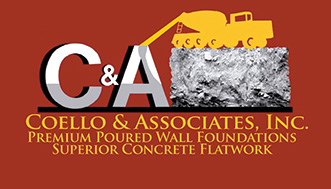Frequently Asked Questions
Is a poured concrete foundation better than block foundation?
What are important factors when considering a poured concrete foundation contractor?
You must look at their experience and ask questions regarding the adjustments made for pouring walls in the different seasons. The strength and variations of the concrete mix should be adjusted throughout the year, so look for a contractor with an extensive knowledge of this practice. Your contractor should utilize admixtures, blanket the walls during the winter months, and should have a close relationship with its concrete suppliers.
Horizontal and vertical reinforcement are both important, so ensuring your foundation contractor understands the need for both is a must. The proper steel reinforcement reduces the chance and severity of shrinkage cracks, and also adds the tensile strength that concrete lacks.
You should also choose a contractor that is at the forefront of his peers in both business and technology. If your foundation contractor is not around in the future your chance of getting technical help later is very marginal. Also, if the equipment and business looks professional, you will likely receive a much more professionally handled job.
Do you offer design services?
We are happy to work with home designers and architects to make suggestions to improve or better draw foundations plans, but we do not offer full-service foundation design. We advise working with a home builder with an in-house designer or consulting an experienced residential design professional when starting a new home or addition.
How easy is it to fix a poured foundation if there is a water problem?
Is a brick pattern available?
Do you pour foundations year-round?
Why is a strong foundation especially important in southeastern Wisconsin?
Do you use concrete pumps or conveyors to pour foundation walls?
Do you do commercial work?
Can you pour concrete walls for an addition?
Do you pour driveways, sidewalks, and patios?
Do you offer extended warranties?
Do you offer ICF Foundations?
No. Our standard system provides greater wall strength than that of an ICF and can be waterproofed before insulation is applied. If insulated on the outside and inside, a standard concrete wall system can achieve an R-Value similar to that of an ICF foundation.
